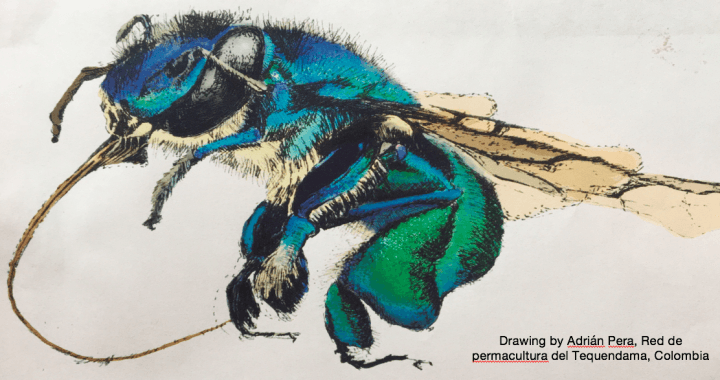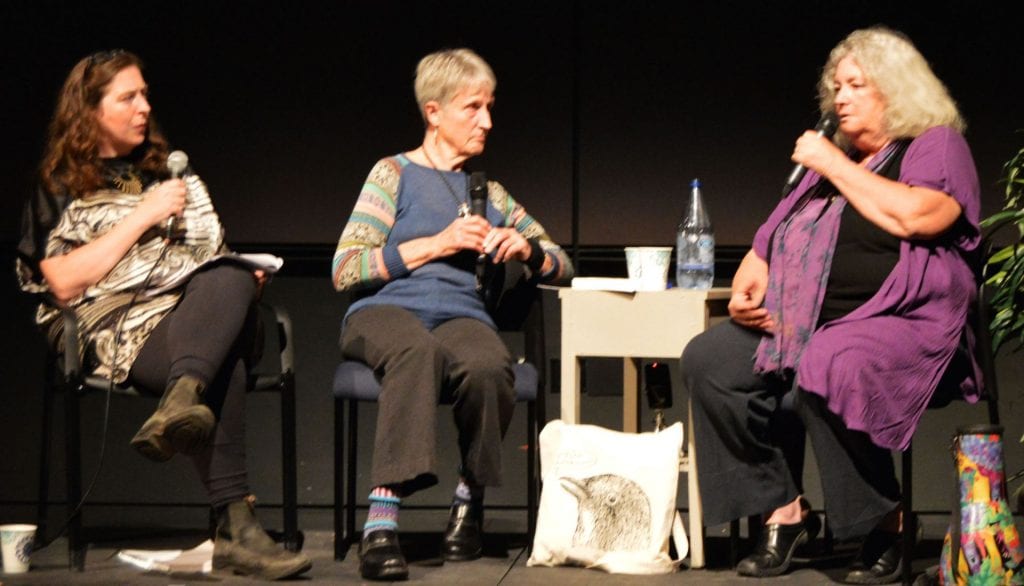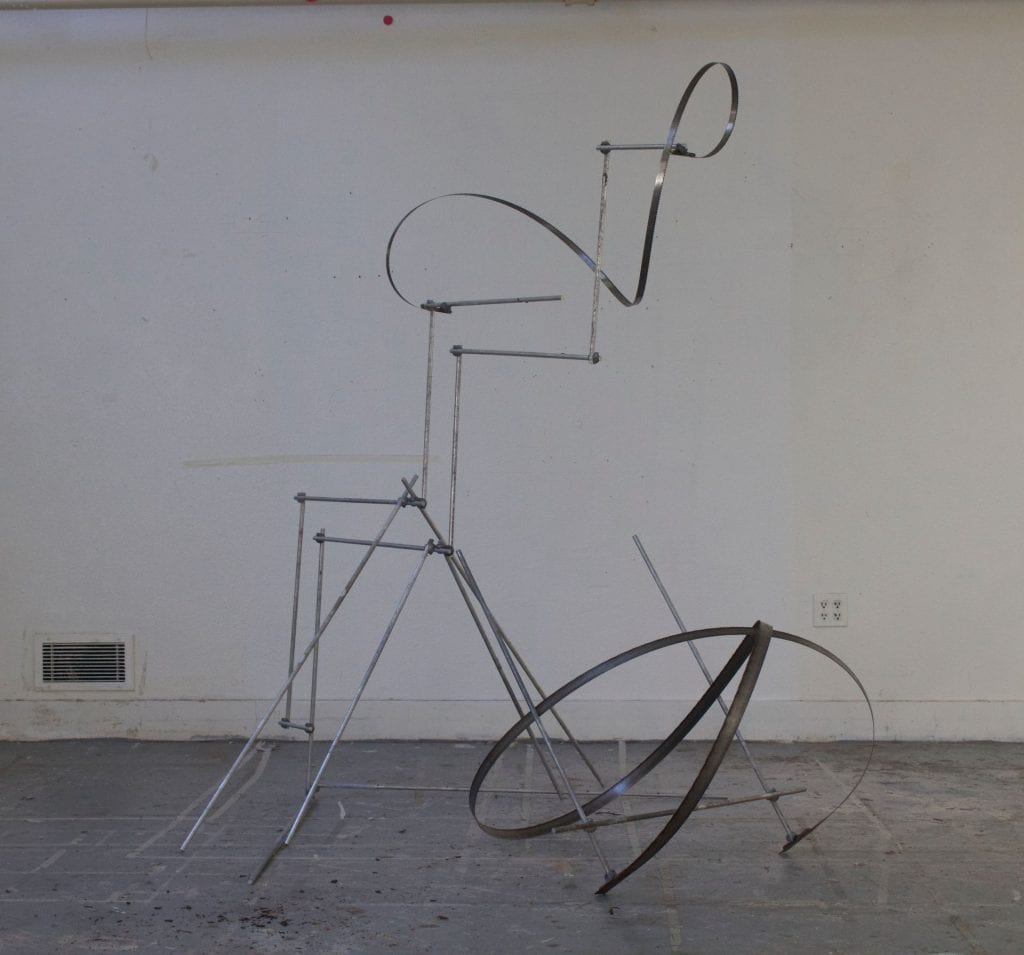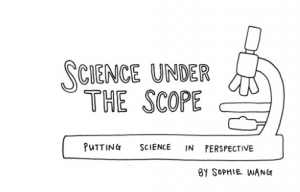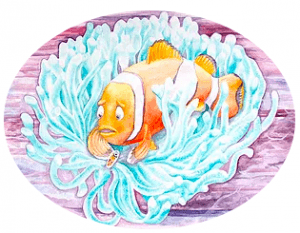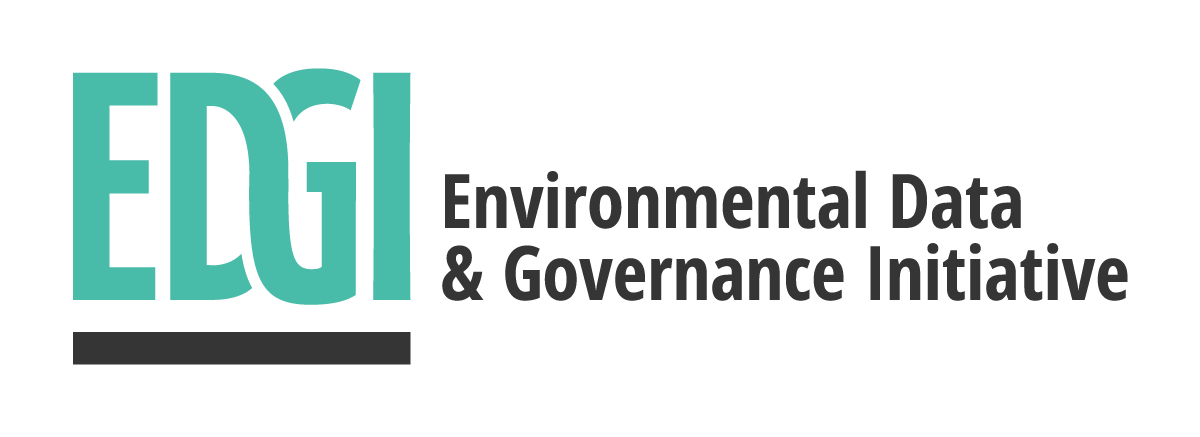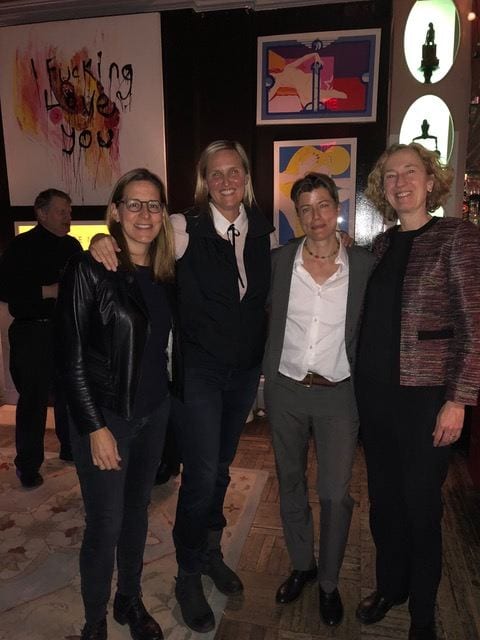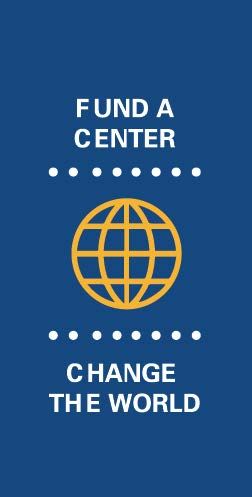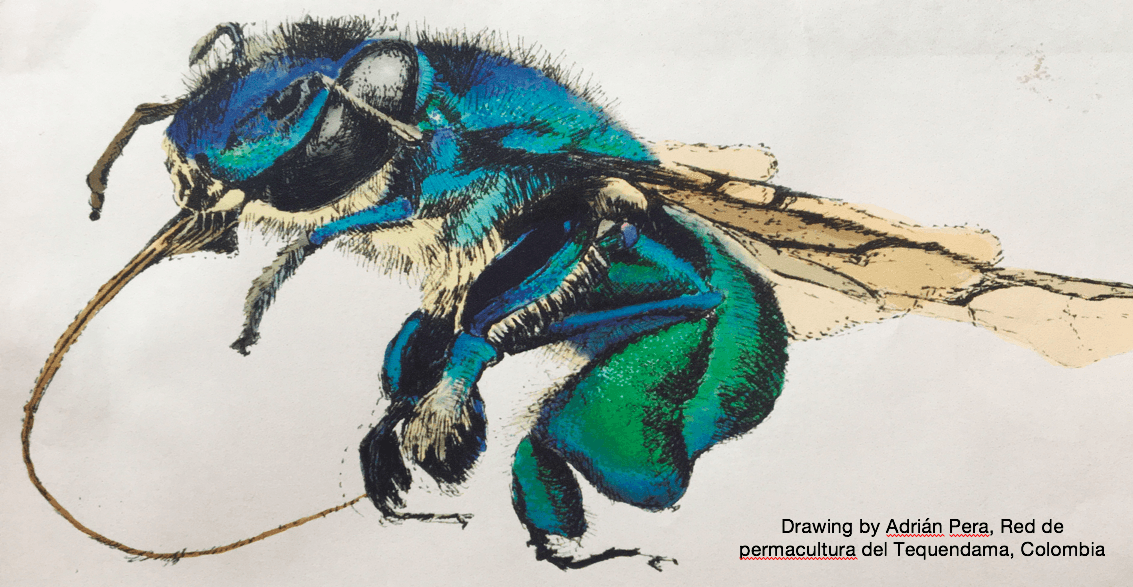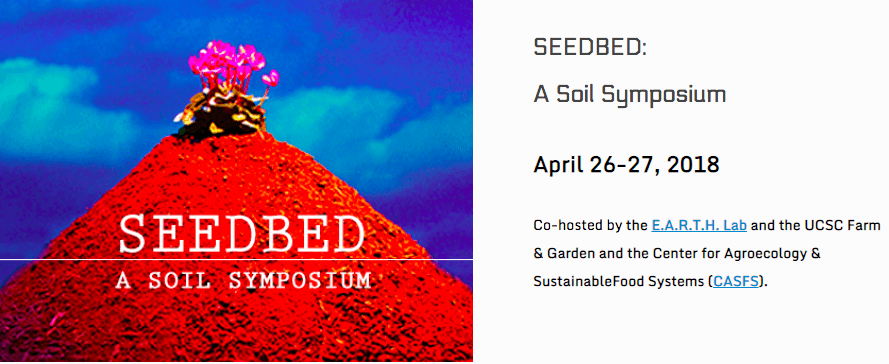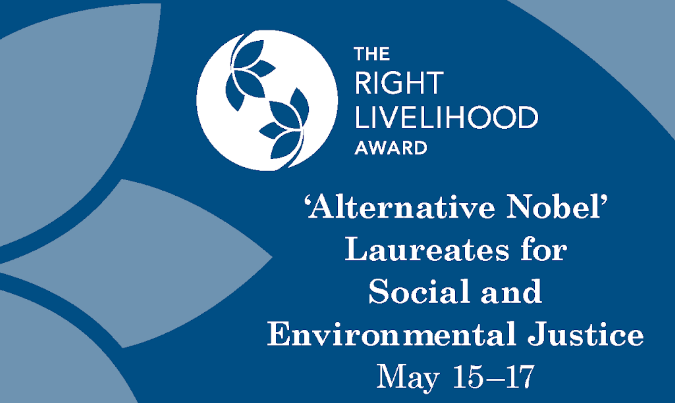Volume 11
Director’s Letter: Welcome to Science & Justice
The 2017-18 academic year was a vibrant and transformative year for the Science and Justice Research Center. Three years of self-study culminated in a transformation of the governance and structure of Science & Justice that brought new leadership and vision. Many new faculty joined our Center, and launched new projects. Among them was our first community-initiated research project, a study of healthcare access and quality in the local Santa Cruz County jail. Several undergraduate students played key roles in these research initiatives, including the Just Biomedicine on 3rd Street Project, which was selected for inclusion in the forthcoming Anti-Eviction Mapping Project atlas, Counterpoints: Mapping Bay Area Displacement and Resistance.
The work of Science & Justice continues to be in the headlines, making a critical difference in California, the nation and globally. Our faculty and students were out front addressing declining trust in the media, censoring of federal climate change web content, and the resurgence of racial reductionism in the life sciences. Our research was supported by the National Science Foundation, the National Institutes of Health, the Fulbright Foundation and the Alexander von Humboldt Foundation. It was recognized by numerous awards and reported in the local, national and international press, including The New Scientist, Salon.com, the Santa Cruz Sentinel and BuzzFeed News. Our writing continues to reach across the natural and social sciences, humanities and the arts. It has appeared and been reviewed in leading journals, from Nature to the British Journal of Sociology, from The American Journal of Public Health to Genome Magazine.
Our events continue to highlight the unusual and inspiring collaborations and conversation Science & Justice creates. Highlights this year included Imaginactivism, a conversation between Donna Haraway and Starhawk organized by S&J visitor, Joan Haran (Cardiff University, United Kingdom), and Addressing Biology and C. Elegans, the Elegant See-Through Worm, a conversation between Susan Strome’s lab and Science & Justice organized by S&J Visitor Kim Hendrickx (KU Leuven, Belgium). Visitors and participants came from the United Kingdom, Belgium, South Africa, Colombia, Canada, and Denmark, continuing to make Science & Justice a space for transnational research and thinking.
As we look forward to the year to come, we appreciate this chance to pause and to share with you our accomplishments of the last year.
Jenny Reardon
Founding Director of the Science & Justice Research Center, Professor of Sociology at UC Santa Cruz
Our Mission
The Science & Justice Research Center at the University of California, Santa Cruz, is a globally unique endeavor that innovates civic spaces and collaborative research practices for exploring the places where questions of science meet questions of justice. Understanding this joining of science and justice is a crucial step in building the capacities needed to create forms of science and technology that are more responsive to diverse needs and that address vital questions:
- Whose lives are supported by investments in high-tech science?
- Whose lives are erased or marginalized?
- How can scientists collaborate with other knowledge producers?
- How can collaboration lead to new research questions that push toward justice?
Through attention to these questions, members of the Science & Justice community come together across historic divides—between the natural and social sciences, academia and wider publics—to forge new strategies for building more just and equitable futures. Biomedical innovation, species extinction, toxic ecologies, healthcare reform and many other contemporary matters of concern provoke questions that traverse multiple intellectual, institutional and social worlds. We foster the alliances and cultivate the empirically rigorous research needed to address these challenges and help forge more livable worlds.
The Center is home to the Science & Justice Working Group, the Science & Justice Graduate Training Program, and several sponsored research projects and research groups. The initiative builds on the UC Santa Cruz campus’ historic commitments to social justice and strengths in science studies and interdisciplinary research.
Our 2017-2018 Team
DIRECTOR | Jenny Reardon, Professor of Sociology
ASSISTANT DIRECTOR | Katherine Weatherford Darling, Adjunct Professor of Sociology
Co-DIRECTOR of the SJTP | Karen Barad, Professor of Feminist Studies
ADMINISTRATIVE ASSISTANT | Colleen Massengale
GRADUATE STUDENT RESEARCHER | Andy Murray, UCSC Sociology
SJRC Steering Committee
Karen Barad, Professor of Feminist Studies
Lindsey Dillon, Assistant Professor of Sociology
James Doucet-Battle, Assistant Professor of Sociology
Kristina Lyons, Assistant Professor of Feminist Science Studies
Jenny Reardon, Professor of Sociology
Katherine Weatherford Darling, Adjunct Professor of Sociology
Sustaining a Vibrant SJRC Community
The Science & Justice Research Center is the home of a vibrant and lively community of scholars. With offices in Rachel Carson College and Oakes College, SJRC hosts visitors from across the UC system and around the world. With collaborators and affiliates at UC Santa Cruz, the SJRC community is committed to sustaining an experimental and collaborative ecosystem for novel ideas, dialogues, methods and collaborations. The Science & Justice Working Group remains the experimental lifeblood of our collective work. We also host regular reading groups and experimental mixers with affiliated graduate students and faculty who seek to further investigate the meanings and practices of science and justice.
Visiting Scholar Program
Since 2009, the SJRC Visiting Scholars Program has been a vibrant hub for interdisciplinary scholars across the UC-system, the nation and the globe. The Science & Justice Research Center offers opportunities for visiting scholars at all levels of their career to participate in the SJRC community through research collaborations, reading groups and experimental mixers. In the 2017-2018 academic year, the Center hosted seven visiting scholars: refer to Appendix 1 to learn more about them.
Highlights from the Science & Justice Working Group, Experimental Mixers, Writing and Reading Groups
We convened diverse speakers and community members in the experimental space of the Science & Justice Working Group. These experimental, convivial and novel spaces for discussion cultivate emerging connections, spark new questions for research, and nurture our communities’ collaborative ties. Below are a few of the events we hosted in the 2017-18 academic year. For a complete list, refer to Appendix 2.
The Center began the year with the annual Meet & Greet on October 11th. In addition to a chance to celebrate the new academic year and enjoy each other’s company over nice food and drink, we welcomed new members of our community, and welcomed back others. This is always a great chance for everyone to meet the new faces in the Center, share about current work and foster emerging collaborations.
In addition to the Science & Justice Working Group, experimental mixers (or ‘Cocktail Hours’ as they are sometimes referred) with our visiting scholars are a lively and open space for all SJRC community members to present in-progress work and to troubleshoot conceptual, methodological and political issues they encounter in their research and practice.
Science & Justice Writing Together
This year, Science & Justice Steering Committee member Lindsey Dillon (Assistant Professor of Sociology), hosted weekly writing sessions open to all SJRC students, faculty and visiting scholars wanting to establish a regular writing routine exploring science and justice. Each session, writers engaged in six 25-minute mini-sessions with a 5 minute break in between. Sessions were scheduled on a quarterly basis based on interest and availability.
Science & Justice Reading Together
Throughout the 2017-18 academic year, a variety of informal reading groups convened. Reading Groups offer the community the chance to discuss key questions across disparate and interdisciplinary research literature. In May, longtime S&J friend and Distinguished Professor Emerita Donna Haraway hosted a gathering discussing “Giving Depth to the Surface – an Exercise in the Gaia-graphy of Critical Zones” co-authored by Alexandra Arènes, Jérôme Gaillardet and Bruno Latour, an unusual collaboration between an architect specialized in landscape planning (AA), a geochemist who heads the French Critical Zone Observation network (JG) and a sociologist of science engaged in a study of the field (BL).
Imaginactivism: Magic, Figuration & Speculative Fiction in the Pursuit of Justice
Imaginactivism is a compound word coined to denote the entangled relationship of imagination and activism. -Haran 2015
How are interpretive / activist communities or networks formed, inspired and / or restored or reinvigorated by fictional cultural production? The Imaginactivism workshop was one attempt to explore this question collectively.
On October 18th, S&J visitor Joan Haran hosted a Speculative Fiction Workshop with Training Program Fellow alum (now Assistant Professor of Women and Gender Studies at San Francisco State University) Martha Kenney. To this half-day intensive workshop, they invited feminist, queer, antiracist, and decolonial STS scholars and activists working on environmental and racial justice to experiment with the possibilities of speculative and visionary storytelling. Participants submitted 900 words of speculative fiction about a particularly meaningful place. Taking specific inspiration from author-activist Starhawk’s The Fifth Sacred Thing (1993) and its sequel City of Refuge (2015) and Distinguished UC Santa Cruz Professor Emerita of History of Consciousness and Feminist Studies Donna Haraway’s “The Camille Stories” (2016) participants of the Imaginactivism workshop were provoked to conjure up its future, produce a speculative and disruptive history or trace the contours of an alternate present.

Concept art by Jessica Perlstein representing San Francisco as described in Starhawk’s The Fifth Sacred Thing.
The nearby Santa Rosa and Napa Valley fires provided urgency to participants’ work. Haran and Kenney, with interventions from Starhawk, Donna Haraway, and Elizabeth Stephens (performance artist, filmmaker, activist, UC Santa Cruz Art Professor) explored the possibilities of speculative and visionary storytelling, attendees learned how both Haraway and Starhawk use science fiction not to conjure purified alternatives or forms of escape, but seek to remain embedded in and accountable to the world.
Following the workshop participants joined a reception before a public dialogue with Donna Haraway and Starhawk on Magic, Figuration & Speculative Fiction as Calls to Action.
Here, Starhawk and Haraway engaged questions about their lifetimes of activism and writing in a conversation moderated by S&J visitor Joan Haran.
The dialogue explored the convergences and divergences of their respective work in ecofeminism and feminist science studies and asked:
How do they each account for their participation in key social movements and what do they understand to be the most urgent work to be done in our current moment?
Dr Haran invited Starhawk and Haraway to reflect on the ways in which they have addressed their readers and students to engage and empower them, asking: How do they address the challenge of communicating and working across generations? Haran asked about their innovative and creative rhetorical strategies, and about the ways in which they both motivated are by speculative fictions and use them to motivate others. Haran asked them to reflect on the ethical and political commitments they have in common; the conditions of possibility afforded by living and working from Northern California in the late 20th and early 21st century; and the specific practices they undertake and relationships they nurture to balance their critical concerns with joy and pleasure in Technoscience and everyday life. The full description and detailed rapporteur report can be found at: https://scijust.ucsc.edu/2017/10/18/imaginactivism/.
Addressing Biology and C. Elegans, the Elegant See-Through Worm
On February 28th, Science & Justice Visiting Scholar Kim Hendrickx convened a meeting with the lab of Distinguished Professor of MCD Biology Susan Strome to discuss C. elegans, the elegant see-through worm that has long served as a model in developmental biology research. Strome and lab members welcomed Hendrickx, Distinguished Professor Emerita Donna Haraway and Science & Justice Director Jenny Reardon along with the S&J community. Invited art student, D (aka Daniel Lynch) created a physical response to the ‘Addressing Biology’ discussion in the form of a sculpture made from discarded laboratory rods, hardware and band saw blades. In their written statement, the student explained: “The UNC blade both suspends and is contained by the construction much like the way scientific dialogue can become bound by the knowledge it has already produced.” Hendrickx responded: “It is strange and exciting to see something very familiar in a new form.” The student, overseen by Dee Hibbert-Jones in the Art Department, was allowed to use this response piece as their final class project. All involved felt the excitement of such creative and engaged interactions between the arts, sciences, social sciences and humanities.
Science & Justice Graduate Training Program
SJRC affiliated faculty teach graduate students how to engage questions of science and justice together. In our graduate course, Science and Justice: Experiments in Collaboration, students from across all five divisions learn how to collectively address the moments where questions of science meet questions of justice. We teach science literacy to non-scientists, and teach scientists and engineers to see the political stakes and impacts of their work. We not only teach why it’s important to collaboratively ask questions, but also propose when and how to ask these questions.
During the 2017-18 academic year, several of our S&J graduate Training fellows brought their final projects to fruition.
On January 31st, 2018, Paloma Medina (a second year Ph.D. student in Biomolecular Engineering and Bioinformatics studying genetic ancestry and the evolution) along with the Free Radicals (a collective that envisions an open and responsible science that works toward progressive social change) hosted a workshop entitled “Research Justice 101: Tools for Feminist Science. ”
The workshop asked participants to consider how communities, cultures, and historical locations shape research. Using feminist science studies as a guiding frame, participants were introduced to – and collectively thought through – how scientists and engineers might practically grapple with questions of justice in their research.
The workshop was well attended. Indeed, many people were turned away at the door, giving some sense of the level of interest in questions about justice and research at UCSC. A full description of the event and a rapporteur report of the workshop is available at: https://scijust.ucsc.edu/2018/01/31/building-feminist-research-practices/.
Medina is also collaborating with Ecology and Evolutionary Biology PhD Student Jessie Kendall-Bar on another project, Finding Marla. This project reimagines the 2003 Disney film Finding Nemo through the lense of queer studies and the biological sciences. In reality, off the big screen, clownfish, like characters Nemo and Marlin, are sequential hermaphrodites and transform from male to female when the matriarch of their colony is removed, such as by death. Once Nemo’s mother had left, Marlin, being the next biggest fish in the colony, would have transitioned to become the female matriarch. Finding Marla asks what Finding Nemo would look like through a queer biological lens? How might the biological sciences expand our imaginaries around sex and gender expression? Finding Marla was presented in February and March 2018 at Watsonville and Santa Cruz youth groups of The Diversity Center of Santa Cruz County. The Finding Marla story can be found at: https://www.jessiekb.com/finding-marla
Graduate fellows Krisha Hernández (Anthropology) and Vivian Underhill (Feminist Studies) also convened their final culminating training program event. In collaboration with Taylor Wondergem (Feminist Studies, PhD student, on February 7, they convened an interdisciplinary group of UC Santa Cruz scholars to discuss their methodological and theoretical engagements with nonhumans as research subjects, objects, and co-laborers. To this round table, they invited decolonial and anticolonial thinkers and scholars whose work strives to work collaboratively across multiple boundaries of discipline, species and hierarchy. Panelists included Laurie Palmer (UCSC Art faculty) and Felicity Schaeffer (UCSC Feminist Studies faculty) as well as 16 graduate student participants. More on “Academic (Re)Considerations: ‘Non-Humans’ and/as Research Objects, Subjects, and Co-laborers” can be found at: https://scijust.ucsc.edu/2018/02/07/academic-reconsiderations/.
In Spring, Feminist Studies Professor and SJRC Steering Committee member Kristina Lyons taught the Science and Justice: Experiments in Collaboration course, in which eleven graduate students (1 Anthropology, 2 Biomolecular Engineering, 1 Environmental Studies, 1 Feminist Studies, 2 Film & Digital Media, 2 Literature, and 2 Sociology) and two advanced undergraduate students (Pure Mathematics and History of Art & Visual Culture) enrolled. Students who took the spring seminar develop project proposals over the summer to be implemented as the next cohort of Training Program Fellows over the 2018-2019 academic year.
Justice Sparks Innovative and Original Research
The Science & Justice Research Center continues to be an exemplar in interdisciplinary programing, public dialogues and original research. Our socially engaged research practices hold justice at the core. In our work, we turn commitments to justice into collaborative research projects. We formulate new methods and institutional practices where scientists and engineers work alongside social scientists, humanists, ethicists, artists and diverse communities. SJRC affiliates pursue local, regional, national, and international research collaborations on issues that inform and affect institutional and public policy. Three themes continued to focus our research this year:
De-Colonizing Knowledge: We ask how scientific practices and practitioners might be transformed through engaging with de-colonial thought and action.
Just Data: We ask how data infrastructures can design in a concern for justice into core practices and technical prowess.
Socio-Ecological Justice: We seek expansive practices of ecological justice that encompass world-sustaining relations and the intradependence of diverse forms of life.
A key success of the Science & Justice community is to support the original research of our students, faculty affiliates and collaborators. Below is a sample of the research members of our community conducted just this last year.
De-Colonizing Knowledge
As part of its effort to forge new modes of conducting research that advance the causes of justice, this year Science & Justice helped to launch Jail / Care: Amplifying Santa Cruz Community Voices on Health & Incarceration. After a series of preventable deaths in the local jail, concern rose in the community regarding the quality and accessibility of health care in Santa Cruz County jails. Science & Justice was approached by Sin Barras a group formed in 2012 in Santa Cruz, CA comprised of individuals dedicated to prison abolition.
Their mission is to advocate for meaningful alternatives to incarceration, amplify voices from inside jails and prisons, and connect with local, statewide, national, and international struggles against prisons, with the ultimate goal of abolishing the prison industrial-complex. After consulting with key affiliates (Nancy Stoller, Mary Beth Pudup, and Andrea Steiner) on their community health work and previous experiences in conducting such studies, Jenny Reardon, Sharon Daniels (Film and Digital Media) and Kate Darling worked with Sin Barras and UCSC Psychology graduate student Roxy Davis proposed a pilot study to assess the health care conditions in the local Santa Cruz jails. The proposal received approval and funding from the UC Santa Cruz Blum Center.
Using methodologies and perspectives from research team members in sociology, film and digital media, and psychology, as well as the community organization Sin Barras, over the summer Davis conducted interviews with formerly incarcerated people and health care providers with knowledge of healthcare in Santa Cruz jails. Informed by people who have direct experience, the study will investigate and document the conditions and quality of healthcare in jail in order to generate a compelling and informative account of healthcare in the Santa Cruz jails that centers the experiences of those receiving it, with the ultimate goals of informing the public, making policy recommendations, and amplifying the voices of formerly incarcerated individuals. For more information or to participate, contact Jenny Reardon or Roxy Davis, study coordinator, at roxydavis@ucsc.edu.
The Objectivity & Justice cluster critically examines what the terms fact, truth, and reality signal to each of us in relations to our own research and disciplines since the inauguration of the 2016 U.S. presidential election. At the same time that it is of utmost importance that facts, truth, and reality be asserted to counter the normalization of lies and fake news used to obscure the truth and manipulate the public, large bodies of scholarship showing the non-innocent and often times harmful use of these terms in ways that collude with the forces of power, including colonialism, racism, militarism, etc. We anticipate that these terms will spark a variety of different associations depending on our fields of study and warmly welcome undergraduates, graduates, and faculty. For more information on this cluster, contact Karen Barad or email ObjectivityAndJustice@ucsc.edu.
Just Data
SJRC continues to build on the continued success and reference to the 2016 NSF funded meeting Just Data? Justice, Knowledge and Care in an Age of Precision Medicine that brought leaders in biomedicine, public health, genomics, science and technology studies, law and ethics to the UCSC campus to create the ‘science and justice’ agenda for a world in which ‘big data’ is seen as the future of biomedicine. Reardon and Weatherford Darling co-edited and submitted a thematic collection for Engaging Science & Technology Studies with collaborators from the 2016 Just Data? dialogues hosted by SJRC. Darling and Reardon were also invited to present their joint work on the Just Data to a Wenner Gren workshop in London in May of 2020.
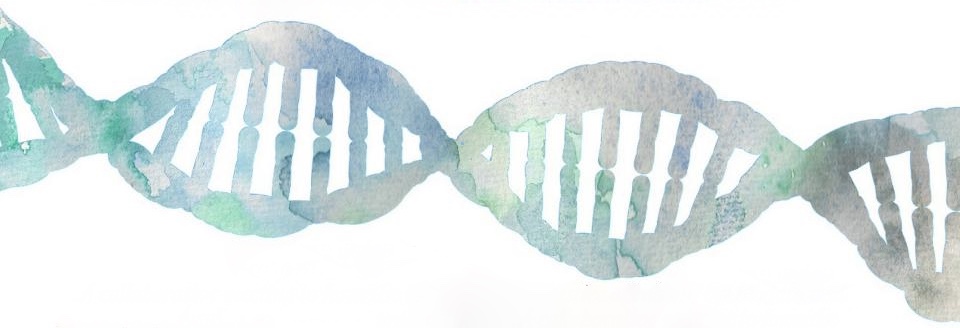
Original watercolor artwork produced by UCSC undergrad Morgan Smith for the May 2016 Just Data? conference
Additionally, SJRC Steering Committee member and Professor of Sociology Lindsey Dillon co-founded EDGI (Environmental Data and Governance Initiative) and served as chair of its steering committee in 2017. Since the wake of the election of Donald Trump, EDGI (with the support of a $500,000 grant from the David and Lucile Packard Foundation), has worked to secure public access to important environmental datasets, including ones on EPA, NASA, and Department of Energy websites. This year, Dillon published multiple co-authored articles such as an new study, ‘The Environmental Protection Agency in the Early Trump Administration: Prelude to Regulatory Capture‘, issued by EDGI and published by the American Journal of Public Health as a part of their special issue on climate change. Inside Climate reported that this new study ‘adds to the mounting scrutiny and criticism of EPA Administrator Scott Pruitt’s policy, personnel and operational decisions, sometimes weave together.’ Information on EDGI’s previous reports can be found at: Trump environmental watchdog group issues third report. Additional public-facing reports, blog posts:
- “Pursuing a Toxic Agenda: Environmental Injustice in the Early Trump Administration“
- “Changing the Digital Climate: How Climate Change Web Content is Being Censored Under the Trump Administration“
- “Environmental Data and Governance in the Trump Era“, Social Sciences Research Council
Dillon contributed to and was interviewed by a number of popular press outlets about this work. See Salon’s “Trump’s EPA: Who cares about environmental racism?”, the Santa Cruz Sentinel’s profile, “Santa Cruz County Stories: UCSC’s Lindsey Dillon provides a model of meaningful activism in the Trump era”, and Outside magazine’s “Déjà Vu at Interior and the EPA”.
Also under the theme of Just Data, this year the Just Biomedicine Research Collective continued its work examining the meeting of biomedicine, biotechnology, and big data along the Third Street corridor in the Mission-Bay neighborhood of San Francisco. Many hope that this convergence will democratize access to health information and produce revolutionary new medical treatments that new companies will make available to the public through market mechanisms. Yet, as in other domains, technoscientific transformations also manifest new inequalities and injustices. These often-hidden justice dimensions can be hard to visualize and hard to stand up for in the biomedical informatic domain where criticism of specific developments can be interpreted as standing against developments in healthcare more generally. Nonetheless, if healthier more robust lives are our goal, then it is imperative that we understand how stratified health and wealth outcomes manifest at this celebrated innovative edge of technoscience. Our collective seeks to understand and bring into view how this happens in the spaces and infrastructures that shape life on Third Street, and asks how we might help bring about a more just form of biomedicine. The Just Biomedicine Research Cluster is convened by SJRC Director Jenny Reardon and SJRC Assistant Director Kate Darling.
Building on their 2016-17 successes, undergraduate researcher Hannah Finnegold (Biology, Law & Society) who was awarded the Koret Scholarship for her work with Just Biomedicine Research Cluster in 16-17, was selected as an Undergraduate Research Ambassador by UC Office of the President. She worked with Emily Caramelli (Sociology, Politics) to build an interactive map of health and social inequalities and biotech profits in San Francisco. The student team was additionally selected for a 2017-2018 campus IDEA Hub fellowship in which they worked to extend and expand their digital mapping project: Visualizing Health & Wealth in a California Biohub Through Digital Mapping.
In Spring Just Biomedicine researchers were selected to work over summer with the San Francisco Anti-Eviction Mapping Project, (Co-Founder and UCSC Feminist Studies alum Erin McElroy) to further visualize stratified health in San Francisco and design a map to be included as “Just Biomedicine on Third Street? Health & Wealth Inequities in San Francisco’s Biotech Hub” on their website and edited Atlas.
Finally, the SJRC continues national and international collaborative research on biodata and justice, locally and globally. In 2017, Director Jenny Reardon was awarded the Friedrich Wilhelm Bessel Research Award from the Humboldt Foundation based in Germany for her field-changing work in this area. The award recognizes scholars who have earned lifetime achievements in research. In addition, award recipients are invited to spend a year collaborating with specialist colleagues in Germany to carry out their proposed research projects. During the 2017-18 academic year, Reardon and her collaborators began to explore how the rise of big data is changing interpretive practices in the life sciences and life scientists’ understandings of and relationships to life. While centered on the life sciences, and in particular on genomics. The study is investigating how different legal and scientific approaches to the management and governance of genomic data create different practices of interpretation that entail different conceptions of knowledge and justice.
In November, Reardon discussed how just genomics and biomedical research is with Radio National, Australian national public radio. Her second book, The Postgenomic Condition: Ethics, Justice, Knowledge After the Genome, a major contribution to the field of biodata and justice, was published by the University of Chicago in December of 2017. A review of The Postgenomic Condition featured in the New Scientist described the book as an “example of the best kind of sociological writing, where specific, detailed, well-told stories are built into a powerful set of arguments with implications not only for the field in question, but for wider society too.”
In March 2018, Reardon launched an international book talk tour beginning in New York. With Science & Justice friends and colleagues Sherry Paul and Libby Moore, Reardon gathered Amy Harmon (The New York Times), Kadija Ferryman (Data & Society Research Institute), and Jason Bobe (co-founder of the Open Humans Foundation, Associate Professor at the Icahn Institute for Genomics, Mount Sinai School of Medicine) to celebrate The Postgenomic Condition’s launch, broaden the discussion of genomics, and support the work of the Science & Justice Research Center.
A few weeks later, Reardon helped to co-write an open letter asking for greater thoughtfulness and more collaboration around addressing the historically fraught nexus of “race” and genetics. This March 30th BuzzFeed News article How Not To Talk About Race And Genetics responded to an opinion piece in the New York Times written by David Reich, a professor of genetics at Harvard. SJRC catalogued the aftermath on this blogpost: Developing: Debate on ‘Race’ and Genomics.
On April 11th, Reardon discussed the debate in a Q&A with GoodTimes on Genomic Research. In an April 20th interview, ‘Genetic research and racism: confrontation instead of autocratic science’, by the German station, Radio Dreyeckland, Reardon explains the current state of tension in genetic research, and whether it is possible to study genetic differences between humans without racism.
Socio-Ecological Justice
Science, Engineering and Education for Sustainability (SEES) postdoctoral fellow Melissa Eitzel Solera continued working with SJRC Director Jenny Reardon and Ken Wilson (The Muonde Trust), to lead the NSF-funded project, “Understanding Resilience in a Complex Coupled Human-Natural System: Integrating Qualitative and Quantitative Information and Community-Based Action Research,” involving a 35-year collaborative research project in rural Zimbabwe run by The Muonde Trust. Together with the Zimbabwean community-based research team, they continue to develop methods of modeling the resilience of Muonde’s agro-pastoral system and synthesizing the available long-term data to answer pressing concerns about sustainable environmental management. They are also making theoretical and practical contributions to more just modeling practices in an age of “big data.”
Dr. Eitzel Solera wrote a ‘modeler’s manifesto,’ describing how to do epistemologically sound statistical and computer modeling to advance goals of justice; the manifesto was submitted to Environmental Modelling and Software. In September 2017, Eitzel Solera presented a lightning talk at Geo4Dev at UC Berkeley (recorded video) on collaborative mapping, showing the effectiveness of peer-based teaching with on-the-ground local researchers who can continue working in their community to address sustainability concerns, including access to education and clean water. On April 25th, she gave an invited talk at the UC Berkeley Department of Geography (recorded video) summarizing the community-based modeling work and the modeler’s manifesto. The model itself, Zimbabwe Agro-Pastoral Management Model (ZAPMM), can be found on CoMSES.net and on GitHub. In July 2018, Eitzel Solera co-authored a paper in Development Engineering about technology transfer with the Muonde Trust, exploring empowerment through participatory digital mapping. Informed by her participation and training with the Science & Justice Training Program, Eitzel Solera conducted a Diablo California Naturalist Class, in which participants discussed citizen science terminology and environmental racism alongside natural history. Since then, she has advised and encouraged groups of Certified Naturalists to conduct the next versions of the class – a bottom-up teaching approach similar to The Muonde Trust, for a more democratic kind of teaching and science.

“Participatory modeling and mapping with university researchers has facilitated community members’ collaboration with local leaders on land-use planning to protect sacred forests”. – Melissa Eitzel Solera
Creating a UCSC Ethics in Practice Curriculum
At an increasing rate, many forms of scientific evidence are met not with questions of curiosity and interest, but with skepticism and mistrust. Healthcare systems are challenged by entrenched inequalities and profit motives. Algorithms encode bias into the heart of big data approaches to science and engineering. The next generation of leaders in biomedical and life sciences, environmental science, and engineering need to be adept at addressing these challenges. At SJRC, we believe this requires bold new approaches to ethics and research practice in STEM fields. We strive to exceed narrow standards for the ethical approval of science and prepare our students to be powerful stewards of socially robust and reflexive science. Our vision of good science exceeds simple compliance with institutional mandates, and we work with affiliate faculty to realize this in practice.
Our partnerships with National Institutes of Health T32 training programs at UC Santa Cruz strengthen these efforts. In 2009, the NIH revised their guidance for training in the responsible conduct of research to encourage substantial face-to-face discussions among the participating trainees and a combination of didactic and small-group discussions. SJRC continues to be a key partner in training biological and life science graduate students.
Additionally, Weatherford Darling participated in the BME program’s “Bootcamp” for incoming students in Fall 2017. Along with S&J visitor Kim Hendricks, she also gave one of the Responsible Conduct of Research Fall 2017 lectures organized by Susan Strome (UCSC Molecular, Cell and Developmental Biology) as part of their T32 training. Professors Reardon and Darling also worked with Ed Green, Associate Professor of Biomolecular Engineering, who successfully received a NIH genomics training grant, to provide ethics training to incoming graduate students in biomedical science and engineering. In the 2018-2019 academic year, SJRC will continue to reach out to the principal investors of NIH training grants to strengthen collaborative graduate training in ethics and justice.
Reflecting on Our Progress
The 2017-2018 academic year marked the end of our sixth year as a research center. Reflecting on our progress, growth and the challenges ahead, we embarked on a third year of self-study. This extended self-study and review process has allowed us to better understand known institutional and staffing support challenges. Refining Center practices and documenting them in the SJRC Handbook, has allowed the SJRC to better share these practices with our affiliates.
In December, Weatherford Darling and Administrative Assistant Colleen Massengale worked to prepare a continuity plan for center staffing in preparation for Weatherford Darling’s postdoctoral fellowship at the Stanford Center for Biomedical Ethics.
In February, Weatherford Darling returned to the Center, and with Administrative Assistant Colleen Massengale organized and facilitated a day-long gathering of our Steering Committee to discuss the previous years collection of self-study information and lingering questions about how to best organize and structure SJRC. With the Assistant Director position now vacant, though in its third and final year of funding, we chose not to fill the position as currently written. We updated and streamlined our leadership structure moving appropriate duties from the Assistant Director position to a Director of Teaching and a Director of Research to be filled by tenure track faculty, as well as expanded administrative items taken on by staff.
Massengale, Director Reardon and Sociology Department Manager Jessica Lawrence continue to work together to better understand who is responsible for which administrative tasks related to running the Center, and when and where the Center can ask for support from the Department or from the Social Sciences Division. They also worked to transform the current administrative position to a program manager position. Reardon also began discussions with the Dean of Social Sciences and the new Director of the Institute for Social Transformation on how to work together to support division research.
As part of the campus call for strategic academic planning, in April, ‘science and justice’ was identified as an area for a Themed Academic Working Group (TAWG). SJRC facilitated the gathering of campus scholars, drafted and submitted a proposal that will be considered for campus resources. The Center met with several groups on campus whose TAWG area overlapped with SJRC’s Areas of Inquiry to find synergies. As proposals were reviewed by academic senate and other campus units for feasibility, the academic areas have been narrowed. The three priority areas – Earth Futures, Justice in a Changing World, and Digital Interventions – all speak to SJRC’s Areas of Inquiry. Based on the research we conducted in the self-study and feedback we received through the TAWG process, we updated and revised the process of faculty affiliation to focus on how the Center can provide effective support to the educational and research efforts of our diverse faculty community.
Looking Ahead
We are not just another obscure academic research center generating scholarly papers. The SJRC has become a dynamic and collaborative infrastructure for training the next generation of humanities, natural and social science researchers who will still be trained and supported to pursue their research and make discoveries, but will do so in ecosystems where ethics and justice are primary concerns. Feedback from other institutions, including the NSF and journal article peer-reviews, indicate that the SJTP has developed a much-needed model for cross-disciplinary training. A goal of the Center is to create learning models that can be replicated and applied in academic and non-academic institutions worldwide. Indeed, UC Davis was recently awarded a grant from the NSF to develop a program modeled on Science and Justice. Plans are also in the works in universities in Canada and the UK.
In 2018-2019, SJRC looks forward to formally inviting faculty to affiliate with the Center, appointing a Director of Teaching, and welcoming a new cohort of Training Program graduate fellows.
As we look to the future, we seek to continue to build SJRC as a hub for extramural funding of research projects with links to science and justice and the overarching themed academic areas. We are committed to developing future research collaborations and seek collaborators from across all divisions and the UC system. We will continue to provide a critical and dynamic space for the intellectual, organizational and moral support of the diverse needs of our faculty, researchers, students, and staff.
Funding the Future of Science & Justice
Director Reardon and Administrative Assistant Colleen Massengale continued to work closely with University Relations and Development to develop strategies for funding the future of science and justice at UC Santa Cruz. We developed case statements and concrete fundraising goals for the research center and for the graduate training program. Our immediate grant-writing and fundraising goals include fellowship support for the Science & Justice Graduate fellows, and support for Center staff and faculty. With the support of the SJRC Steering Committee, we will continue to pursue grants to support the Center’s collaborative research, training and advocacy activities.
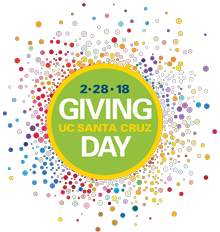 In February, we participated again in creating a campaign for UCSC’s annual Giving Day.
In February, we participated again in creating a campaign for UCSC’s annual Giving Day.
In March, Reardon’s book launch in New York was hosted not only to celebrate The Postgenomic Condition’s launch, but also to gather a new audience in New York of alumni interested in supporting the work of UC Santa Cruz and the Science & Justice Research Center. Following several successful meetings that emerged from the book’s launch, in May, Director Reardon secured a $25,000 gift to support student researchers working to build more just biotechnology and big data in the biomedical informatic domain. Reardon continues to work closely with the donor on institutional accountability and current global health concerns.
Additional grant funding and donor contributions will secure our efforts to build an internationally recognized program that trains the next generation of scholars to responsibly take up the important social and scientific problems of our time. Higher lever grant writing and program coordination will help us to go after such grants. As the Center prepares to seek funding to support the re-structured Center, we hope to spread current campus commitments more evenly among units and divisions to holistically support the Center.
Our ambitious fundraising goals and sustained efforts to pursue grant and foundation funding will continue the growth and vitality of our work and community.
SJRC’s promise is simple and bold. The benefits are manifold: improved outcomes not just for humans, but for the many non-human lives as well; approaches to science and technology that balance prosperity and justice, health, ecological survival and ethics. Our affiliated researchers and interdisciplinary teams have built decades of scholastic expertise examining the life sciences and biomedicine, health, environment, food, and racial and economic justice. The Center provides the critical milieu in which the creative sharing of this expertise leads to novel justice praxis and knowledge sharing that fosters and supports diverse lives and futures.
Appendix 1: Visiting Scholars
Melissa Eitzel Solera a National Science Foundation Postdoctoral Science, Engineering and Education for Sustainability Fellow
Lesley Green a Fulbright Fellow, Associate Professor of Anthropology in the School of African and Gender Studies, Anthropology and Linguistics, University of Cape Town (South Africa); Director of Environmental Humanities South, Faculty of Humanities, University of Cape Town
Joan Haran a Marie Skłodowska-Curie Global Fellow, Cardiff University; European Commission funded researcher, University of Oregon
Kim Hendrickx a PostDoctoral Researcher, Life Science & Society Lab within the Center for Sociological Research, University of Leuven (Belgium). Visit supported by the Flemish Research Foundation.
Matthew Kearnes an Australian Research Council Future Fellow, a CI with the ARC Centre of Excellence in Convergent Bio-Nano Science & Technology (CBNS) and member of the of Environmental Humanities Group at the School of Humanities and Languages, University of New South Wales (Australia).
Joseph Klett a Research Fellow, Science History Institute (formerly Chemical Heritage Foundation)
Declan Kuch is a Research Fellow in the School of Humanities and Languages at University of New South Wales (Australia).
Appendix 2: Science & Justice Working Group, Experimental Mixers, Writing and Reading Groups
Epigenetics, Trauma, and Restorative Justice
Post-genomic scientific research practices are shifting conceptualizations of the relationships between bodies & environments over human lifetimes and generations (Lappé & Landecker 2015; Darling et al. 2016). Epigenetics has recently generated a set of frameworks & methods for linking environmental & social exposures to molecular effects. Longtime S&J friends Ruth Müller (Assistant Professor of Science & Technology Policy at Technical University of Munich) and Martha Kenney (Assistant Professor of Women and Gender Studies at San Francisco State University, S&J Training Program Fellow alum) are investigating how the narratives about early life adversity coming out of environmental epigenetics circulate in the life sciences and in wider publics (Kenney & Müller, 2017). In their recent article “Of Rats and Women: Narratives of Motherhood in Environmental Epigenetics,” they identify troubling trends in how the results of these experiments are narrated, specifically how trauma and early life adversity are often framed as causing potentially-irreversible life-long damage.
On October 3rd, Ruth Müller and Martha Kenney joined SJRC Assistant Director Kate Weatherford Darling and S&J visitor Kim Hendrickx in dialogue about their current research project that investigates how research from epigenetics and neurobiology is currently taken up by restorative justice and trauma-informed care practitioners. They explored: How their models of trauma differ from those of life scientists? How biological frameworks are enrolled in the context of restorative justice events and trainings? How can narratives emerging from restorative justice and trauma-informed care contribute important perspectives to research in the life sciences?
Fall Visiting Scholar Roundtable
On November 1st, new S&J Visiting Scholars, Kim Hendrickx and Joan Haran, shared a bit about their work and research intentions while visiting Santa Cruz. We also heard reflections from current visitor Melissa Eitzel Solera on the progression of her experiments in participatory data science and just modelling.
Treasure Island and Ecological, Infrastructural, and Racial Justice
“Treasure Island and Ecological, Infrastructural, and Racial Justice – Atomic Maneuvers, Toxic Legacies, and the Current Housing Crisis in the Bay Area: For Whom and When is Treasure Island Habitable?” San Francisco’s Treasure Island, constructed for the 1939 Golden Gate International Exposition, was given to the U.S. Navy on the eve of World War II. While under the Navy’s dominion, the Island because a simulation site for training soldiers to handle disasters. Following the testing of the hydrogen bomb at Bikini Atoll in 1952, Treasure Island became ground zero for training exercises on radioactive contamination. These “simulations” leaked into the real world, contaminating the Island with toxic and radioactive substances (Dillon, 2017). When the military left Treasure Island they gave it to the city of San Francisco. Treasure Island, a toxic site, is inhabited by a majority of people of color, who are now being threatened with eviction in order to accommodate the city’s plan to build 8500 new housing units.
Professor of Feminist Studies Karen Barad answered a public call for help from Smadar Lavie, a resident of Treasure Island currently fighting eviction and Ethnic Studies Scholar at UC Berkeley. On November 29th, Barad convened the S&J community and the Telling the Truth: Objectivity & Justice Research Cluster to discuss the inseparability of ecological, infrastructural, and racial justice, asking: For whom and when is Treasure Island habitable? And, what can be done in the now for current residents? Participants gathered were Lindsey Dillon (UCSC Sociology, SJRC, EDGI) who provided historical context from her 2017 book chapter, “Pandemonium on the Bay: Naval Station Treasure Island and the Toxic Legacies of Atomic Defense” which appeared in Urban Reinventions: San Francisco’s Treasure Island, Lynne Horiuchi and Tanu Sankalia (eds), Honolulu: University of Hawaii Press. Erin McElroy (UCSC Feminist Studies alum, Co-Founder of the San Francisco Anti-Eviction Mapping Project) walked us through specific portions of the Anti-Eviction Mapping Project website and provided additional background information. Topiary Landberg (UCSC Film & Digital Media, SJRC Training Program fellow) provided additional insights.
Winter Visiting Scholar Roundtable
S&J welcomed Lesley Green, (Fulbright Scholar, Associate Professor of Anthropology and Founding Director of Environmental Humanities South at the University of Cape Town, South Africa) to the S&J Visiting Scholars Program who, on January 17th, shared an overview of a forthcoming book, “Rock | Water | Life” and a wider Environmental Humanities South project building on soils scholarship, while visiting Santa Cruz.
Can We Build a Trustworthy and Trusted Press: News from The Trust Project
We all think we can tell the difference between opinion, advertising and accurate news. But how do we really know? On February 15th, Sally Lehrman led the S&J and Sociology communities in a discussion of this critical question. Lehrman, an award-winning journalist and Visiting Science & Justice Professor, directs the The Trust Project, a consortium of top news companies that are developing publically-accessible standards for assessing the quality and credibility of journalism. Lehrman presented and asked for feedback on how to maximize the impact of the project. Read all about The Trust Protocol and The Trust Project and its partners (The Economist, The Globe and Mail, the Independent Journal Review, Mic, Italy’s La Repubblica and La Stampa, and The Washington Post) at the following links:
The Verge: Facebook adds trust indicators to news articles in an effort to identify real journalism
CNN Tech: Facebook, Google, Twitter to fight fake news with ‘trust indicators’
Reflexivity Isn’t Enough: (Re)Making ‘Place’ in Ethnographic Practices
On March 14th, Indígena Ph.D. Candidate and Teaching Fellow in the Department of Anthropology and S&J Training Program fellow, Krisha J. Hernández (Mexica/Aztec, Yaqui (Yoeme), and Bisayan) presented a two-part talk. First, Hernández drew on a forthcoming journal publication which narrated an embodied and experiential ethnographic approach, one that reimagines ethnography and ethnographic practices, and works to contribute to healing and Indigenous survivance. Second, Hernández, who is a Society for Visual Anthropology awardee, conducted a reading of their ethnographic poetry while inviting bees into the space with the help of photo-ethnography. Hernández’s dissertation work is a relational collaboration with bees, among many more-than-human beings, in and with the borderlands of California and Arizona. Thus, bees and the Indigenous lands from where they live and from which they come were present and honored through both visual and poetic engagements.
Additionally, Hernández is a Ronald E. McNair Postbaccalaureate and Sally Casanova Pre-Doctoral Scholar and researcher in the Indigenous Science, Technology, and Society (Indigenous STS) international research and teaching hub lab chaired by S&J External Board Member Kim TallBear, Canada’s Research Chair in Indigenous Peoples, Technoscience, and Environment. Her forthcoming dissertation, “Agents of Pollination: Indigenous Bodies & Lives, and U.S. Agriculture Technosciences,” is concerned with Indigeneity and materialisms, (de)colonization and settler colonialism, and collaboration (with more-than-(but including)- human beings) as healing. Hernández researches human-insect relations in food and agricultural systems, more-than-human socialites, foodways, and environmental change in which they employ a critical Indigenous feminist lens toward more-than-human personhood.
Making Worlds with Crows: A Multispecies Ethics Workshop with Thom van Dooren
Ubiquitous in their global presence, crows are now found almost everywhere that people are: from critically endangered island crows living in disappearing forests to abundant urban species finding new ways to exploit changing cities. In this way, crows offer a broad range of instructive sites for exploring the challenges and possibilities of multispecies life in the context of escalating processes of globalisation, urbanisation, climate change, and extinction. On March 15th, Longtime S&J friend, Thom van Dooren (Associate Professor and Australian Research Council Future Fellow (2017-2021) in the Department of Gender and Cultural Studies at the University of Sydney, Australia) presented an overview of his new book, Making Worlds With Crows; we then discussed its final chapter, “Provisioning Crows: Cultivating Ecologies of Hope.” The discussion offered an overview of changing human/crow relationships focussing on five key sites in an effort to develop approaches and practices for a situated, attentive, multispecies, ethics.
Spring Visiting Scholar Roundtable
On April 11th, S&J welcomed Katharine Legun (Sociology Lecturer and Researcher at the Centre for Sustainability, University of Otago, New Zealand) to the Science & Justice community. Katharine’s work considers more-than-human approaches to understanding economic and environmental practice, focusing particularly on the role of plants in shaping human agency within agriculture. At this roundtable, Katharine shared an overview on her work in plants and aesthetic politics, farmers and intellectual property, and the ever shifting power structures in agri-food systems. More on Katharine’s fascinating work on how the vibrant botany of apples shapes orchard culture and market institutions can be found in the article “Club apples: a biology of markets built on the social life of variety” and “Tiny trees for trendy produce: Dwarfing technologies as assemblage actors in orchard economies.”
“Sons and Daughters of Soil?” reflections on Life Sciences and Decoloniality in South Africa
Responding, as researchers, to Earth Mastery that includes not only violent machines, but a violation of evidence and epistemes including the scientific episteme, requires accumulating and presenting evidence for existences that do not exist — at least, not in neoliberal discourses. In trying to research and support specific situations of Black environmental struggle in South Africa, S&J Visiting Scholar Lesley Green found herself standing with that which has no existence in conventional discourses: for a cliff that no longer exists; for molecules that have no existence in local knowledge; for people who have no existence in the mining companies, for the assassinated Bazooka Radebe, whose existence is now with the Ancestors, and with the soil he died to conserve. Environmental Humanities South, Directed by Green at the University of Cape Town, had begun by asking a question about how to generate evidence in the geological Anthropocene. By the time their first three years had ticked by they had encountered the Capitalocene, Green told us on May 2nd, how they learned that a far more fundamental struggle had to be the focus of their work. Now asking: What exists? Who exists? In what registers and modes? How do we take on the new conquistadors with their machines called Earth Masters, given that it is their owners’ logic that has come to define who exists and what exists and what can be ground to dust? How can scholarship contribute to the building of a broad-based environmental public? Presented as a dilemma tale, Green’s talk hosted by the IHR Race, Violence, Inequality and the Anthropocene Cluster, sketched six moves toward an ecopolitics in South Africa, with the question: what else could be in this discussion?
The previous day, May 1st, Lesley Green and Kristina Lyons (Professor of Feminist Studies, SJRC Steering Committee) hosted a reading seminar on #ScienceMustFall and ABC of Plant Medicine: On Posing Cosmopolitical Questions.
Timescales, Memory, and Nuclear Geographies
Writers and activists researching nuclear things face “the challenge of rendering visible occluded, sprawling webs of interconnectedness” (Nixon 2011, 13). The May 9th conversation featured two writers whose work traces the sprawling webs of nuclear geographies, binding uranium mining and its dispersed radioactive legacies. Julie Salverson (Professor of Drama and Cultural Studies, Queen’s University, Canada) links the mines of Northern Canada with the U.S.’s use of nuclear weapons in Japan, and the later disaster at Fukushima, while Gabrielle Hecht (Professor of History and Nuclear Security, Stanford) examines the afterlives of neocolonial uranium mining by French companies in Gabon. Salverson and Hecht experiment with different conceptual and writerly methods to trace the geographies of these extractive economies and their uneven effects. This discussion with Salverson and Hecht was moderated by Science & Justice Steering Committee members Karen Barad (Professor of Feminist Studies) and Lindsey Dillon (Professor of Sociology) and a continuation of the Telling the Truth: Objectivity & Justice Research Cluster.
Attendees were invited to read the following representative articles from each author.
- Salverson, Julie and Peter C. van Wyck. “Through the Lens of Fukushima.” Forthcoming in Through Post Atomic Eyes, edited by Claudette Lauzon and John O’Brian. McGill-Queen’s University Press.
- Hecht, Gabrielle. “Interscalar Vehicles for an African Anthropocene: On Waste, Temporality, and Violence.” Cultural Anthropology 33, no. 1 (2018): 109-141.
References:
Nixon, Rob. Slow Violence and the Environmentalism of the Poor. Harvard University Press, 2011.
Assembling Precision Medicine
On May 16th, SJRC Director Jenny Reardon hosted S&J Visiting Scholars Declan Kuch and Matthew Kearnes in an informal discussion on how proponents of the bio-nano sciences, centered around polymer chemistry, have promised a new generation of targeting agents that carry drug payloads to diseased cells with greater accuracy. Alongside these promises, proponents of precision medicine have sought to build new knowledge about health and illness through massive new databases that combine multiple ‘-omics’ with lifestyle and chemical exposure data. Much has already been written speculating both the efficacy and social effects ‘downstream’ of these sciences, especially the likely consequences of precision medicine in domains of socio-economics, race and disability (Juengst et al., 2016; Meagher et al., 2016).
Kearnes and Kuch instead sought to discuss with the S&J community, how these critiques are (or are not) affecting laboratory designs, practices, and methods, starting with a discussion of critiques of bio-nano science (Torrice, 2016; Wilhelm et al., 2016). Asking: how can bio-nano science and precision medicine practically address their critics in such disciplines as public health and sociology dismissing them as expensive indulgences to benefit mostly rich white people? What role can data sharing play in building public support? How can the open science ethos of bio-nano and much precision medicine research translate into public benefit considering the expanding ‘pharmaceuticalization’ of illness (Dumit, 2012) and rising drug prices?
Bioengineering in the Open
 Bioengineering is an ascendant and elite field. Advocates of “open” bioengineering propose to expand the participants, methods and scope of practices & ideas for intervening in biology. Drawing on the perceived innovative successes of Silicon Valley, these advocates often promote analogies to computer and information technology to both frame and direct biological engineering’s development as a definitive technology of the twenty-first century. On May 16th, “Bioengineering in the Open” explored the points of agreement and contention between different versions of “open” bioengineering, including what sources of inspiration and promise they find outside of biotechnology’s conventional borders.
Bioengineering is an ascendant and elite field. Advocates of “open” bioengineering propose to expand the participants, methods and scope of practices & ideas for intervening in biology. Drawing on the perceived innovative successes of Silicon Valley, these advocates often promote analogies to computer and information technology to both frame and direct biological engineering’s development as a definitive technology of the twenty-first century. On May 16th, “Bioengineering in the Open” explored the points of agreement and contention between different versions of “open” bioengineering, including what sources of inspiration and promise they find outside of biotechnology’s conventional borders.
Specifically, the gathering compared the versions of “open” biotechnology espoused by a university-based bioengineer and a DIY biohacking collective. Drew Endy, Assistant Professor of Bioengineering at Stanford University, promoted the development of standardized biological engineering through the open-source Registry of Standard Biological Parts, working with biological systems to make them more “engineerable.” Oakland-based DIY “biohacking” and citizen science collective Counter Culture Labs Co-founder and Chair Patrik D’haeseleer compared the innovative powers of community laboratories to the garages that birthed many Silicon Valley startups and emphasizes “democratizing” and “demystifying” biotechnology by taking it outside the ivory towers of universities and research laboratories. As politics of openness in bioengineering have clear justice implications, they present cases for who should be allowed to contribute to and benefit from the biology of the future. By shaping bioengineering in the image of computer and information technology, these political visions adopt some familiar models of participation and regulation. Sociology Graduate Student and S&J Researcher Andy Murray brought these advocates of different visions of “open” bioengineering together with the Science & Justice Working Group to discuss common concerns of innovation, accessibility, and intellectual property. The full description and discussion questions can be found on the event page.
Ethnographic Transdisciplinary Engagements Roundtable and Webinar
We understand ‘the global South’ in a broad sense to refer to places and spaces of enduring structural violence.
On May 17th and 18th, S&J Steering Committee member Kristina Lyons (Professor of Feminist Studies) and Visiting Scholar Lesley Green hosted a two-day roundtable to strengthen environmental humanities’ engagement with the sciences in ethnographically driven work focusing on moments of newly shared insight, mutual incomprehension, and partial connection.
They asked:
How do we move from postcolonial critiques of science to decolonial engagements with the sciences in specific places in the world?
What has it taken (or would it take) for you to ask questions that enable you to ‘stand with’ (TallBear 2014) others in your ethnographic and regional contexts?
With invited colleagues joining our campus community driving in from Irvine and logging-in remotely from South Africa, Canada, Colombia and Denmark working on the environmental humanities in the global South, this roundtable put into dialogue diverse techno-scientific actors with science studies.
Participants were asked to reflect on moments when productive transdisciplinary thinking emerged or was foreclosed in their field research, whether in terms of translation across different practices and scales, and considering the forces of economic structures, colonial legacies, and everyday militarization and social and armed conflict.

Jenny Reardon, Lesley Green, Kali Rubaii, Stephanie McCallum, Lina Pinto García, Nikiwe Solomon, Michelle Pressend, Maya Marshak, Kristina Lyons, Krisha J. Hernández, Alberto Morales, and Donna Haraway with 10 ZOOMed locations from South Africa, Colombia, Zimbabwe and Mozambique
Appendix 3: Research Clusters & Projects
Ensuring We Can Trust in the News
Sally Lehrman, award-winning journalist and SJRC Visiting Professor continues to lead The Trust Project and further develop The Trust Protocol to ensure we can believe what we read in the newspapers and online. Hundreds of news sites are now showing the Trust Indicators, transparency disclosures that show who and what is behind a piece of news and the news site that produced it, including commitments to ethics, avoidance of conflict-of-interest, and the reporter’s expertise. Lehrman is leading the effort, which provides user-facing information and technical data to help both the public and news distribution systems identify quality, ethically reported news amid the digital hubbub. The Trust Project convenes senior editors, designers and other journalism leaders to apply themselves to this problem in workshops held in the San Francisco Bay Area; New York; Washington, D.C.; and London. The work is based upon in-depth interviews with members of the public to understand what people value in the news, what earns their trust, and when trust has been broken. Lehrman directs the project, which operates as a collaboration with news organizations in the U.S., Brazil, Canada and Europe. Lehrman continues to present globally, hold workshops with the public and journalists, and solicit feedback on how to maximize the impact of the project.
Queer Ecologies Research Cluster
Queer Ecologies is a reading group led by Training Program Fellow Paloma Medina. It meets every other week to investigate how sexuality and concepts of nature have been historically linked. In particular, they are interested in how evolutionary and ecological science has informed what is “natural” and how we use this information to delineate certain sexual behaviors as normal or aberrant. Queer Ecologies seeks to examine the historical making of the natural as it relates to sexuality while communicating the overwhelming diversity of sex and gender in biology. Member, Raed Rafei, a UCSC PhD student in Film and Digital Media is working with Helem, an LGBTQ-rights organization based in Lebanon, making a documentary film, called “On the Natural.” The film will question the concept of “natural” in Raed’s hometown of Tripoli, Lebanon, where homosexuality is criminalized as an act against “the order of nature.” Raed is funded as a 2018 Human Rights Center Fellow. For more information on this cluster, visit the Queer Ecology webpage.
The Race, Genomics, and Media Research Cluster
The Race, Genomics, and Media cluster explores the avenues by which genomic research contributes to new narratives of racial difference in comparative contrast with older racial discourses that emerged during colonial, postcolonial, and contemporary moments. We are particularly interested in how diverse media technologies diffuse and reinfuse these racialized representations through networked virtual and geographical social spaces. Our analytical foci extend to a critical examination of how media representations of difference rebiologize both race and gender in seemingly objective ways that visually and sonically naturalize health disparities, color-code deviance, legitimate social inequality, and quantify human intellectual potential. The RGM Cluster is convened by SJRC Steering Committee Member James Doucet-Battle.
Science Feminist Anti-Racist Equity (FARE) Collective
Reardon and Weatherford Darling continued to work together with scholars from other institutions and agencies to push biomedical and science policy leaders beyond narrow questions of privacy and consent. They helped to found Science FARE (feminist, anti-racist, equity), an informal gathering of and writing collective that in 2016, published a letter in Nature magazine calling for the inclusion of justice questions in the research agenda of the Chan-Zuckerburg supported BioHub.
In March 2018, Reardon was prompted with 67 natural and social scientists, legal scholars and public health researchers to draft a response to claims in a New York Times op-ed by Harvard geneticist David Reich, entitled “How Genetics is Changing Our Understanding of ‘Race.” In the piece, Reich argued that geneticists “are learning that while race may be a social construct, differences in genetic ancestry that happen to correlate to many of today’s racial constructs are real.” The open letter, published by Buzzfeed News, asserts that Reich misrepresents critiques of the use of ‘race’ and ‘population’ in biomedical and genetic research. It urged for greater collaboration between geneticists and their social science and humanities colleagues so that more careful thinking and writing can be brought to bear upon consequential and controversial questions about how human differences should be ordered and understood. This cyclical debate again sparked numerous discussions world-wide. As it developed, SJRC catalogued these articles serving as a repository for related stories. To give the reader some context for this current debate, in addition to the news coverage, we provided links to relevant academic articles and paying particular attention to how this debate is playing out differently in different countries – we provided links to coverage in other parts of the world.
Director Reardon, who helped draft the Buzzfeed response, and who just finished a second book (The Postgenomic Condition: Ethics, Justice, and Knowledge After the Genome, University of Chicago Press 2017) on the condition of living with genomes, participated in this continuing discussion from Germany while on fellowship at the University College of the Albert-Ludwigs-Universität Freiburg. There she collaborated with historians and population geneticists to respond to efforts to re-introduce into Germany genetic definitions of human groups. Since WWII, it has been taboo in the German context to use the term Rasse (the German word for ‘race’) to refer to humans. However, many major German language media outlets are mobilizing the Reich op-ed to argue that this taboo should end.
In May 2018, Reardon was invited to and participated at a Congressional Briefing in Washington, D.C. organized by the Harvard Department of Genetics. Also in May 2018, Reardon was invited to participate in a two-day workshop on ‘Exploring Innovative Biobanking Approaches to Enhance Research and Open Science’ hosted by the Chan Zuckerberg Initiative Science Team to better understand and evaluate where CZI may contribute. The workshop planned for a future where high quality, ethically derived tissues are easily and openly available to the patient and research communities. A goal that aligns well with SJRC affiliate partners in the UC Santa Cruz Genomics Institute through its Human Genome Project. Together with researchers, representatives of major biobanks and tissue sourcing initiatives, biomedical ethicists and legal analysts and funders, they discussed the challenges and bottlenecks in this area and spoke about the work already being done to address the pressing issues rapidly increasing.
Telling the Truth: Objectivity & Justice Research Cluster
The Objectivity & Justice cluster continued to critically examine what the terms fact, truth, and reality signal to each of us in relations to our own research and disciplines since the inauguration of the 2016 U.S. presidential election. At the same time that it is of utmost importance that facts, truth, and reality be asserted to counter the normalization of lies and fake news used to obscure the truth and manipulate the public, large bodies of scholarship showing the non-innocent and often times harmful use of these terms in ways that collude with the forces of power, including colonialism, racism, militarism, etc. We anticipate that these terms will spark a variety of different associations depending on our fields of study and warmly welcome undergraduates, graduates, and faculty. The Telling the Truth Cluster is convened by SJRC Steering Committee Member and Co-Director of the Science & Justice Training Program Karen Barad.
Appendix 4: SJRC Steering Committee Publications
Books, Monographs, and Translations
- Barad, Karen. 2018. Translation of “Matter feels, converses, suffers, desires, yearns and remembers,” into Arabic; translation by Abir Kopti, for Anemones Arabic version.
- Barad, Karen. 2017. Translation of dOCUMENTA notebook into Italian; translation by Liana Borghi and Elana Bougleux for Quanto Queer.
- Barad, Karen. 2017. “Performatividade pós-humanista: para entender como a matéria chega à matéria,” (Tradução: Thereza Rocha) in Vazantes: Revista Do Programa De Pós-Graduação Em Artes Do Instituto De Cultura e Artes ICA/UFC, vol.1 (no.1): 8-34.
- Reardon, Jenny. 2017. The Postgenomic Condition: Ethics, Justice, Knowledge After the Genome, University of Chicago Press.
Book Chapters
- Barad, Karen. 2018. “Troubling Time/s and Ecologies of Nothingness: Re-turning, Re-membering, and Facing the Incalculable,” in Eco-Deconstruction: Derrida and Environmental Philosophy, edited by Matthias Fritsch, Philippe Lynes, and David Wood. NY: Fordham U Press.
- Barad, Karen. 2018. “Matter feels, converses, suffers, yearns and remembers,” in Anemones, edited by Abir Kopti. (Reprint)
- Barad, Karen. 2017. “No Small Matter: Mushroom Clouds, Ecologies of Nothingness, and Strange Toplogies of Spacetimemattering,” in Arts of Living on a Damaged Planet, edited by Anna Tsing, Heather Swanson, Elaine Gan, and Nils Bubandt. University of Minnesota Press.
- Barad, Karen. 2017. “What Flashes Up: Theological-Political-Scientific Fragments,” in Entangled Worlds: Religion, Science, and New Materialisms, edited by Catherine Keller and Mary-Jane Rubenstein (Fordham University Press).
- Dillon, Lindsey and Julie Sze. June 2018. “Equality in the Air We Breathe: Police Violence, Pollution, and the Politics of Sustainability,” in Sustainability: Approaches to Environmental Justice and Social Power, NYU Press.
Peer-Reviewed Articles
- Barad, Karen. 2017. “Troubling Time/s and Ecologies of Nothingness: Re-turning, Re-membering, and Facing the Incalculable,” in New Formations: A Journal of Culture/Theory/Politics no. 92, special issue on Posthumanist Temporalities, edited by Manuela Rossini and Michael Toggweiler.
- Dillon, Lindsey, Christopher Sellers, Vivian Underhill, Nicholas Shapiro, Jennifer Liss Ohayon, Marianne Sullivan, Phil Brown, Jill Harrison, Sara Wylie, and EPA Under Siege Writing Group. “The Environmental Protection Agency in the Early Trump Administration: Prelude to Regulatory Capture.” American Journal of Public Health 108, no. S2 (2018): S89-S94.
- Covered in “Pruitt’s EPA Is on the Verge of ‘Regulatory Capture’, Study Says” by Insight Climate News.
- Fredrickson, Leif, Christopher Sellers, Lindsey Dillon, Jennifer Liss Ohayon, Nicholas Shapiro, Marianne Sullivan, Stephen Bocking et al. “History of US presidential assaults on modern environmental health protection.” American Journal of Public Health 108, no. S2 (2018): S95-S103.
- Reardon, Jenny. Forthcoming. “Ends Everlasting.” British Journal of the History of Science.
- Reardon, Jenny. Forthcoming. “Race, Rome and the Genome.” British Journal of Sociology.
Public-facing reports, blog posts (co-authored)
- Dillon. “Pursuing a Toxic Agenda: Environmental Injustice in the Early Trump Administration” https://envirodatagov.org/publication/pursuing-toxic-agenda/, EDGI.
- Covered in “Trump’s EPA: Who cares about environmental racism?” by Salon.
- Dillon. “Changing the Digital Climate: How Climate Change Web Content is Being Censored Under the Trump Administration“, EDGI.
- Dillon, with Christopher Sellers. “Environmental Data and Governance in the Trump Era“, Social Sciences Research Council.
Popular Media
- Dillon. 2017. Interview in “Santa Cruz County Stories: UCSC’s Lindsey Dillon provides a model of meaningful activism in the Trump era”, Santa Cruz Sentinel, August 20.
- Dillon. 2018. Interview in “Toxic soil went from SF’s Hunters Point to state landfills, ex-workers say”, SF Chronicle. April 22.
- Reardon. 2018. “Genforschung und Rassismus: Auseinandersetzung statt autokratischer Wissenschaft” (“Genetic Research and Racism: Discussion not Autocratic Science”), Radio Dreyeckland, April 20.
- In a Freiburg radio interview, Reardon discusses the Reich op-ed, subsequent responses are archived in the SJRC blog post, “Developing: Debate on ‘Race” and Genomics.”
- Reardon. 2018. Interview in “The Postgenomic Condition”, New Books Network. April 20.
- Reardon. 2018. “Genomics Justice League.” Genome. April 3.
- Reardon. 2018. “Opinion: How Not To Talk About ‘Race’ and Genomics”, BuzzFeed News. March 30.
Appendix 5: SJRC Steering Committee Awards and Highlights
- Barad. Awarded a Fulbright Fellowship for Fall 2018. As part of the Fulbright, Barad gave over 19 keynote addresses, lectures, and master classes across Australia, in Sydney, Melbourne, Tasmania, and Perth, exploring collaborations between SJRC and Deakin University Science & Society Network.
- Dillon. Co-founded EDGI (Environmental Data and Governance Initiative), served as chair of its steering committee and helped secure a $500,000 David and Lucile Packard Foundation grant for EDGI’s efforts.
- Doucet-Battle. Was awarded a $4.5K 2018-19 UCHRI Junior Faculty Manuscript Workshop Grant for a book proposal “Recruiting Sweetness: Translating Race and Risk in Type 2 Diabetes Research.”
- Reardon. Was awarded the Bessel Prize by the Humboldt Foundation. At the award ceremony in June she was honored to meet the First Lady of Germany.
- Reardon. As part of her Humboldt Prize, was awarded a residency at the Freiburg Institute For Advanced Studies, University of Freiburg, April-May 2018.
Appendix 6: SJRC Funders
Grants
SEES Fellows: Understanding Resilience in a Complex Coupled Human-Natural System: Integrating Qualitative and Quantitative Information and Community-Based Action Research.
Funding Agency: National Science Foundation
Principal Investigator: Jenny Reardon (for Melissa Eitzel Solera)
Amount: $520,412
National Institutes of Health T32 training program
Funding Agency: National Institute of Health
Principal Investigator: Ed Green
Private Donors
Robb Mass with GS Gives, $25,000.
Major Sponsors
Department of Sociology
Division of Graduate Studies
Division of Humanities
Division of Physical & Biological Sciences
Division of Social Sciences
Fulbright Foundation
The UC Santa Cruz Genomics Institute
Office of Research
Research Mentoring Institute
SJWG Event Co-Sponsors
Department of Anthropology
Department of BME
Department of Feminist Studies
Department of Philosophy
Department of Sociology
History of Consciousness Program
Molecular, Cell, and Developmental Biology Department
The UC Santa Cruz Center for Agroecology and Sustainable Food Systems (CASFS)
The UC Santa Cruz Center for Creative Ecologies
The UC Santa Cruz E.A.R.T.H. Lab
The UC Santa Cruz Genomics Institute
The UC Santa Cruz Humanities Institute
The UC Santa Cruz Open Lab
The UC Santa Cruz Women in Science and Engineering (WISE)
Major SJRC Co-Sponsored Events
April 26-27 UCSC Seedbed: A Soil Symposium

